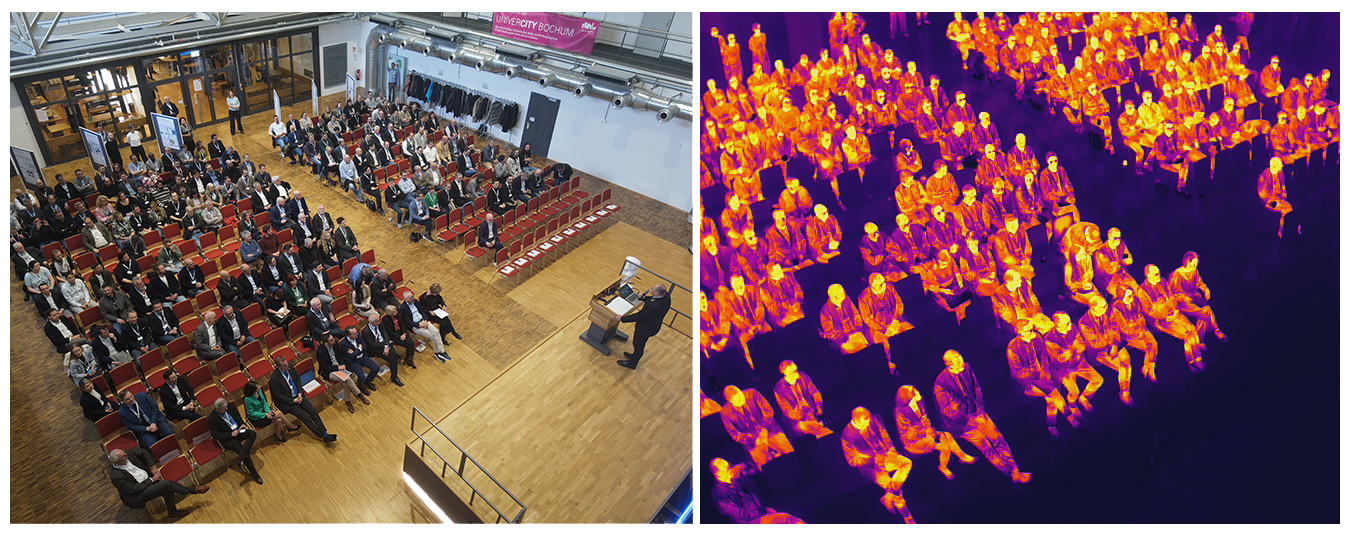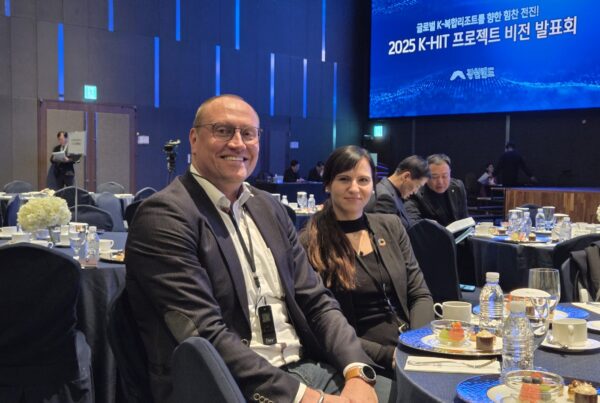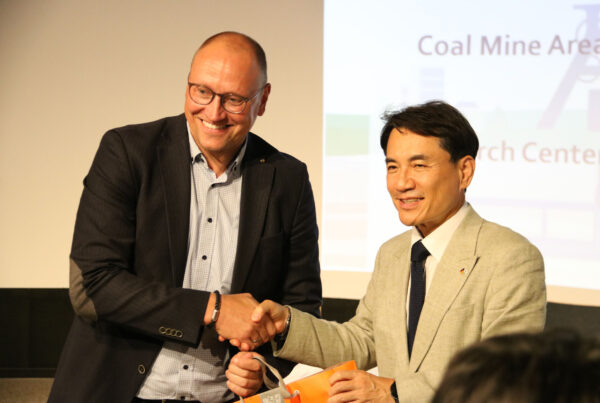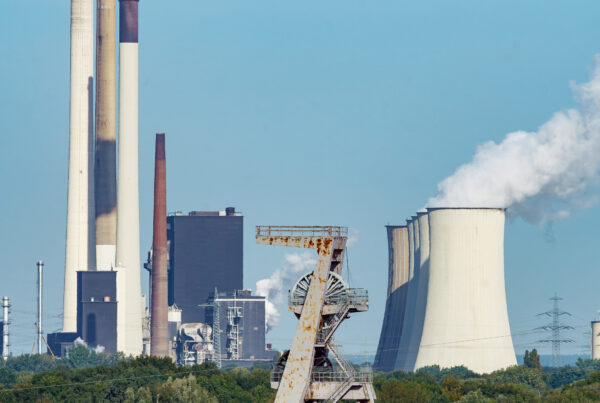The question of how sustainable digitalization can succeed in post-mining was the focus of the symposium “Nachbergbauzeit NRW - Digitalisierung trifft Tradition” ("Post-mining era NRW - digitalization meets tradition") on 20 March 2025 at the student center of the Georg Agricola University of Applied Sciences in Bochum.
The approximately 250 participants were able to experience how much and what is already technically possible and successfully in use in a variety of presentations and direct exchanges. In this way, Nachbergbauzeit NRW built a thematic bridge from traditional and historically extremely effective mining to the future and state-of-the-art digital technologies.
Organized by the Research Centre of Post-Mining (FZN) and the Department of Mining and Energy of the Arnsberg District Government, the event offered a nationally and internationally unique platform to show how digitalization and traditional methods work together to sustainably master the challenges of post-mining.
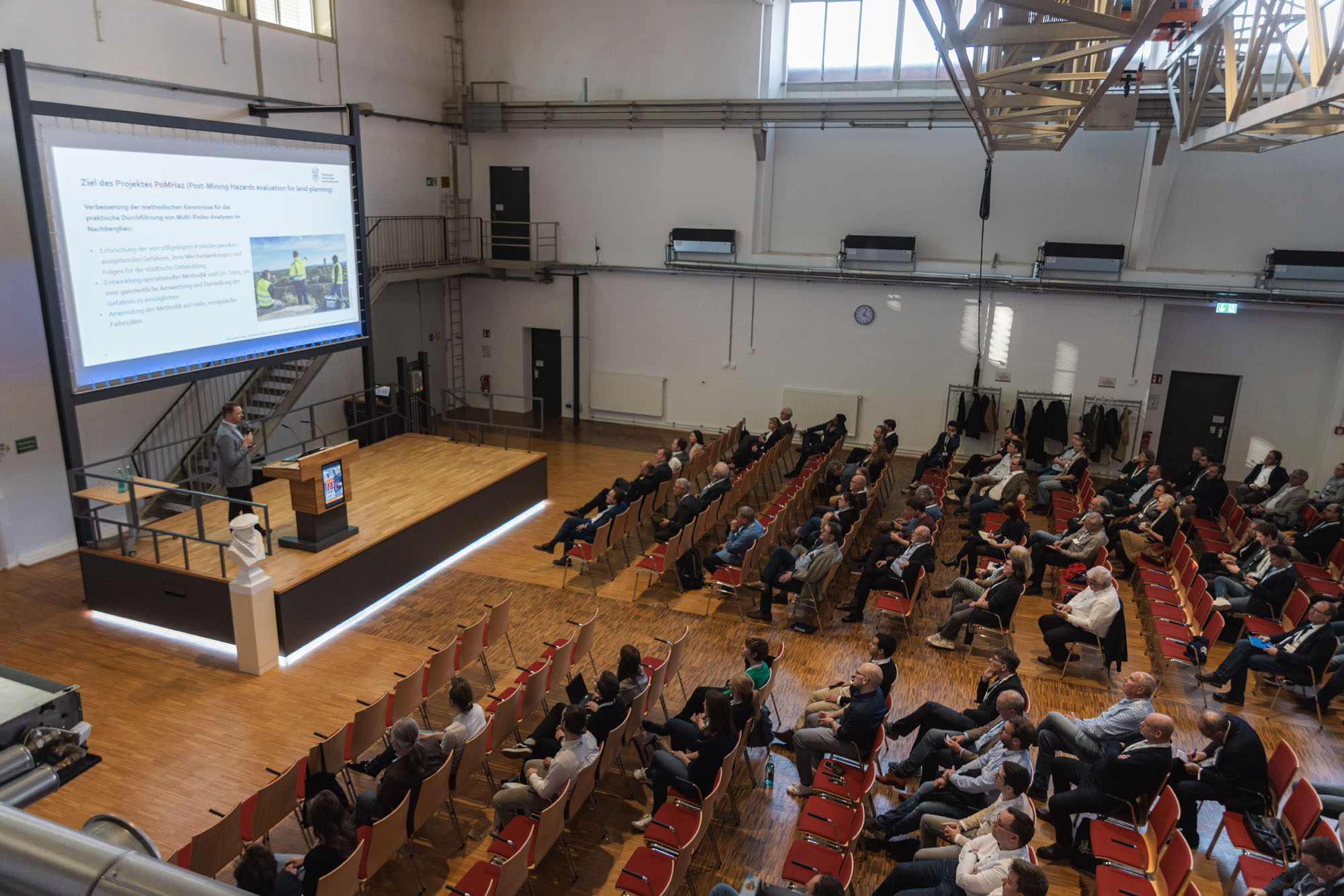
© Jason Rittmeyer / Bezirksregierung Arnsberg & FZN
A “ treasure” of data and expertise in the Ruhr region
The open and professionally diverse structure of the post-mining era in NRW was brought up right at the opening of the conference. In his welcoming address, Prof. Dr. Christian Melchers, Director of the Research Centre for Post-Mining, stated in line with the conference motto: “We have a treasure in the Ruhr region. And that is no longer coal. It's the data.” Prof. Dr. Christian Melchers not only emphasized the great value of geodata and the opportunities that its digitalization offers us, but also ventured a positive regional outlook for the coming decades.
“The Ruhr region has the chance to become the greenest industrial region in the world!”
Prof. Dr. Christian Melchers (Head of the Research Center of Post-Mining)
Post-mining is more than just a regional issue - it is a future project with global relevance. Prof. Susanne Lengyel, President of the Georg Agricola University of Applied Sciences (THGA), made this unmistakably clear. Her focus: the young professionals who will help shape this change. “Together with our students and the future graduates of our university, we want to tackle the tasks that post-mining in particular entails,” emphasized Lengyel.
For her, one thing is clear: top-level research alone is not enough. It needs people who are prepared to take on responsibility and go new paths.
“The world's demand for raw materials is growing. This must be handled sustainably and responsibly. These are all important aspects that concern us today - and will continue to do so in the future.”
Prof. Susanne Lengyel (President of the Georg Agricola University of Applied Sciences)
Heinrich Böckelühr, District President of the Arnsberg district government, began his speech with a brief insight into the historical dimension of mining, the development of post-mining in NRW and the resulting challenges. He underlined the importance of the NRW post-mining era, which was now taking place for the eighth time, by describing it as a “genuine traditional event”. Heinrich Böckelühr also pointed out the huge opportunities offered by digital technologies - for example, for hazard prevention: The further digitization of the mining authority is indispensable in this regard and remains firmly in focus, said the district president.
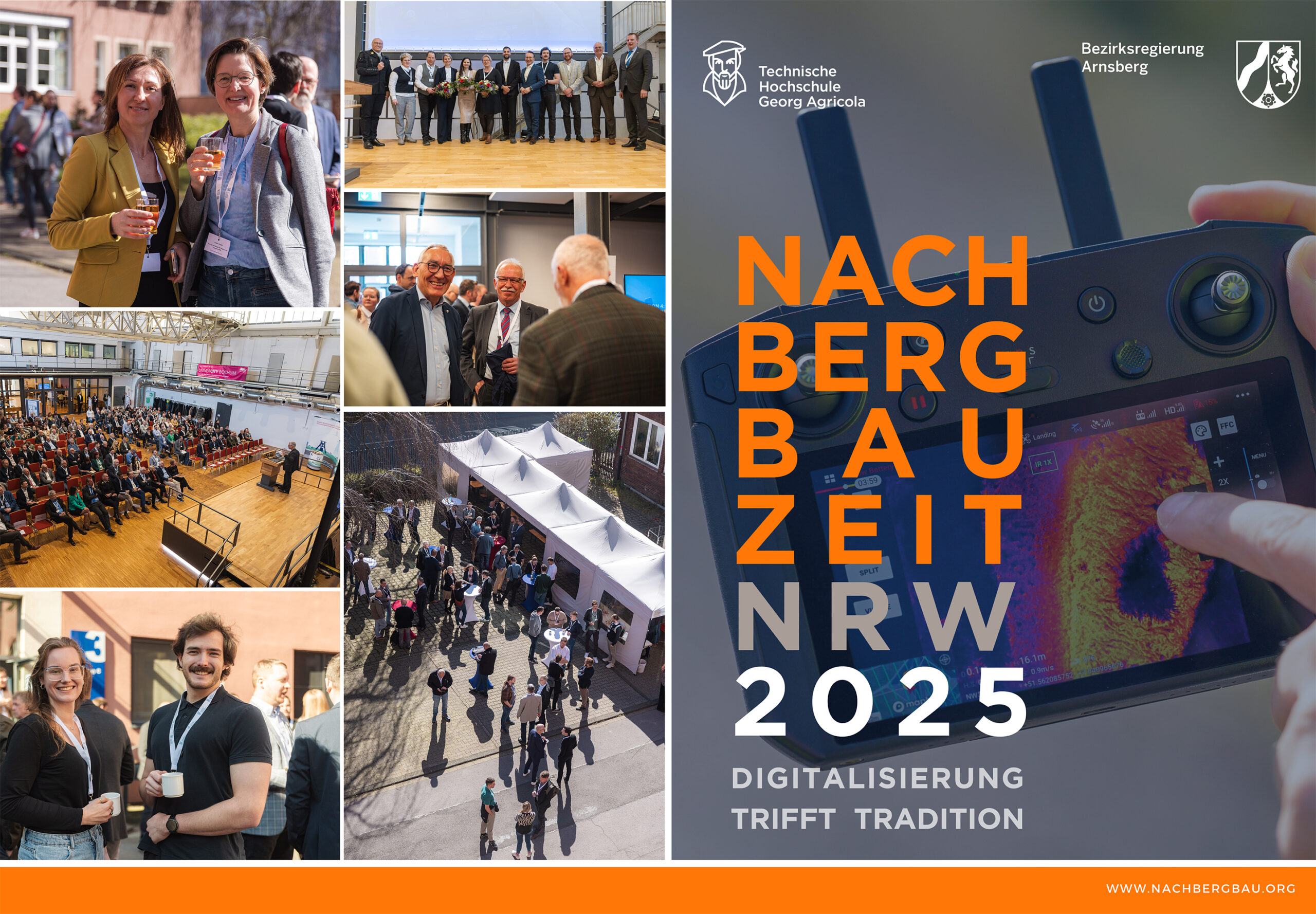
© Jason Rittmeyer/ Bezirksregierung Arnsberg & FZN
In her speech, Bärbel Bergerhoff-Wodopia, member of the RAG-Stiftung's Board of Executives, spoke about sustainable financing and dealing with the perpetual obligations following the end of the German coal mining industry. She particularly highlighted the development of the Research Center for Post-Mining (FZN) into the Transformation Center for Georesources and Ecology ("Transformationszentrum für Georessourcen und Ökologie - TGÖ"). This development was a decisive step towards linking science, transfer and innovation more closely together and providing forward-looking impetus for the sustainable use of georesources. Bergerhoff-Wodopia: “We support and accompany the TGÖ on its way with great commitment, because we are certain: knowledge creates the basis for shaping our future in a sustainable way!”, describing it as a “real traditional event”. Heinrich Böckelühr also pointed out the huge opportunities offered by digital technologies - for example, for hazard prevention: The further digitization of the mining authority is indispensable in this regard and remains firmly in focus, said the district president.
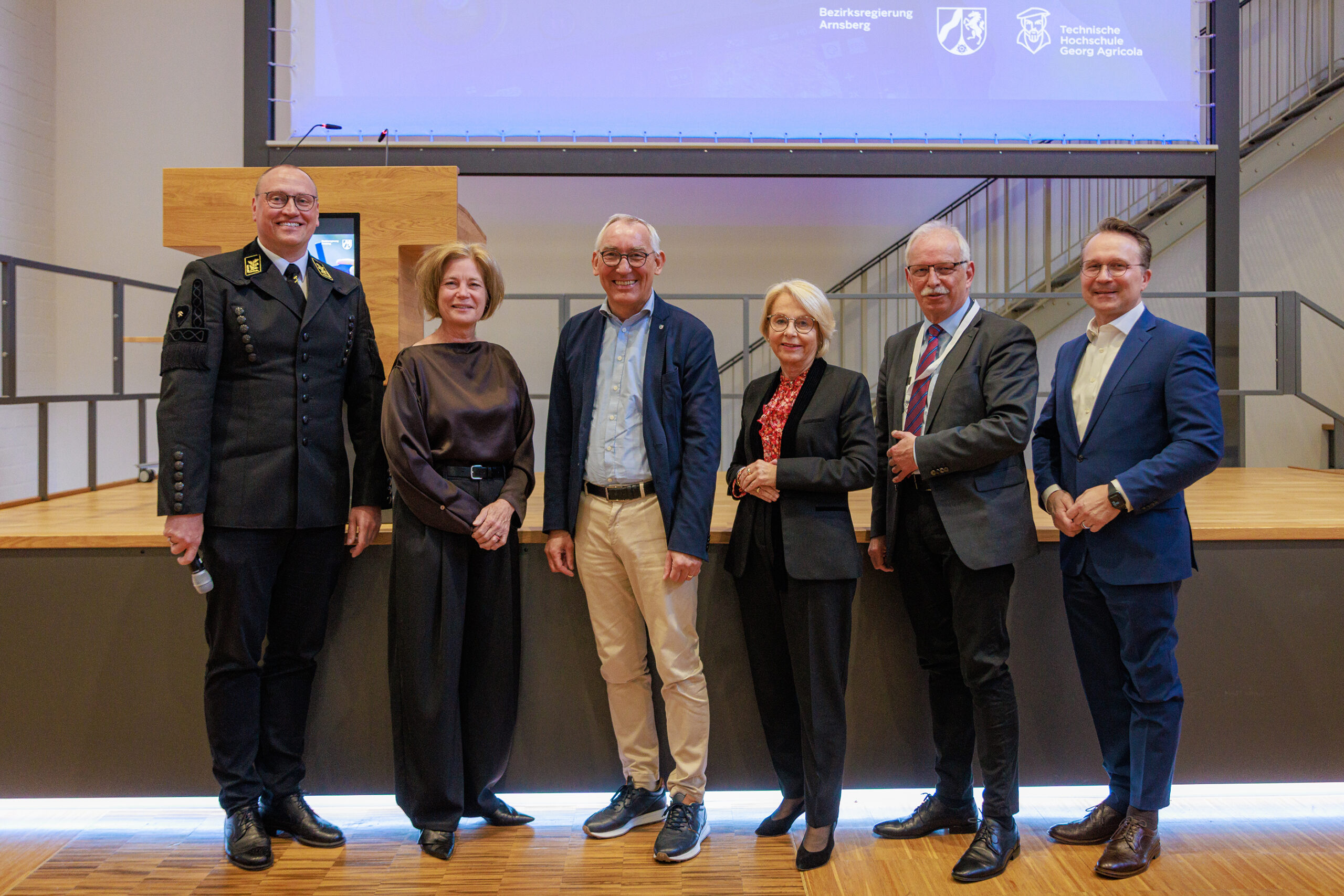
For a digital and sustainable future of post-mining: (from left) Prof. Dr. Christian Melchers (FZN), Prof. Susanne Lengyel (THGA), District President Heinrich Böckelühr, Bärbel Bergerhoff-Wodopia (Member of the Board of the RAG-Stiftung), Andreas Welz (Head of Department 6 of the Arnsberg District Government) and Ulrich Wessel (Managing Director of DMT-LB)
©Jason Rittmeyer/ Bezirksregierung Arnsberg
Diverse conference content in the context of post-mining
North Rhine-Westphalia, once a major mining state, has long since developed into a post-mining state. Today, the region uses its extensive experience and innovative knowledge to record and manage the traces of intensive raw material extraction. The symposium impressively demonstrated how historical legacy data and modern geodata can be combined to promote the sustainable management of post-mining landscapes.
The use of drones in post-mining, 3D modelling, improvements to digital maps for risk management, automation in geomonitoring, digitized water management, the use of AI and open data systems: The speakers were able to shed light on post-mining with a variety of topics and perspectives, visualize science in the presentations and explore potentials.
The combination of lectures, discussions and networking opportunities as well as the multi-perspective views on the topic were once again a benefit at the 8th "Nachbergbauzeit", as Prof. Dr. Christian Melchers states: “The post-mining era NRW 2025 was a complete success. The concept once again proved its worth. Comprehensive content, interesting presentations and great encounters mean that I am already looking forward to the next post-mining era NRW 2027”.
A drone was launched during the NRW 2025 post-mining period and took thermal images of the participants.
© FZN
Contact
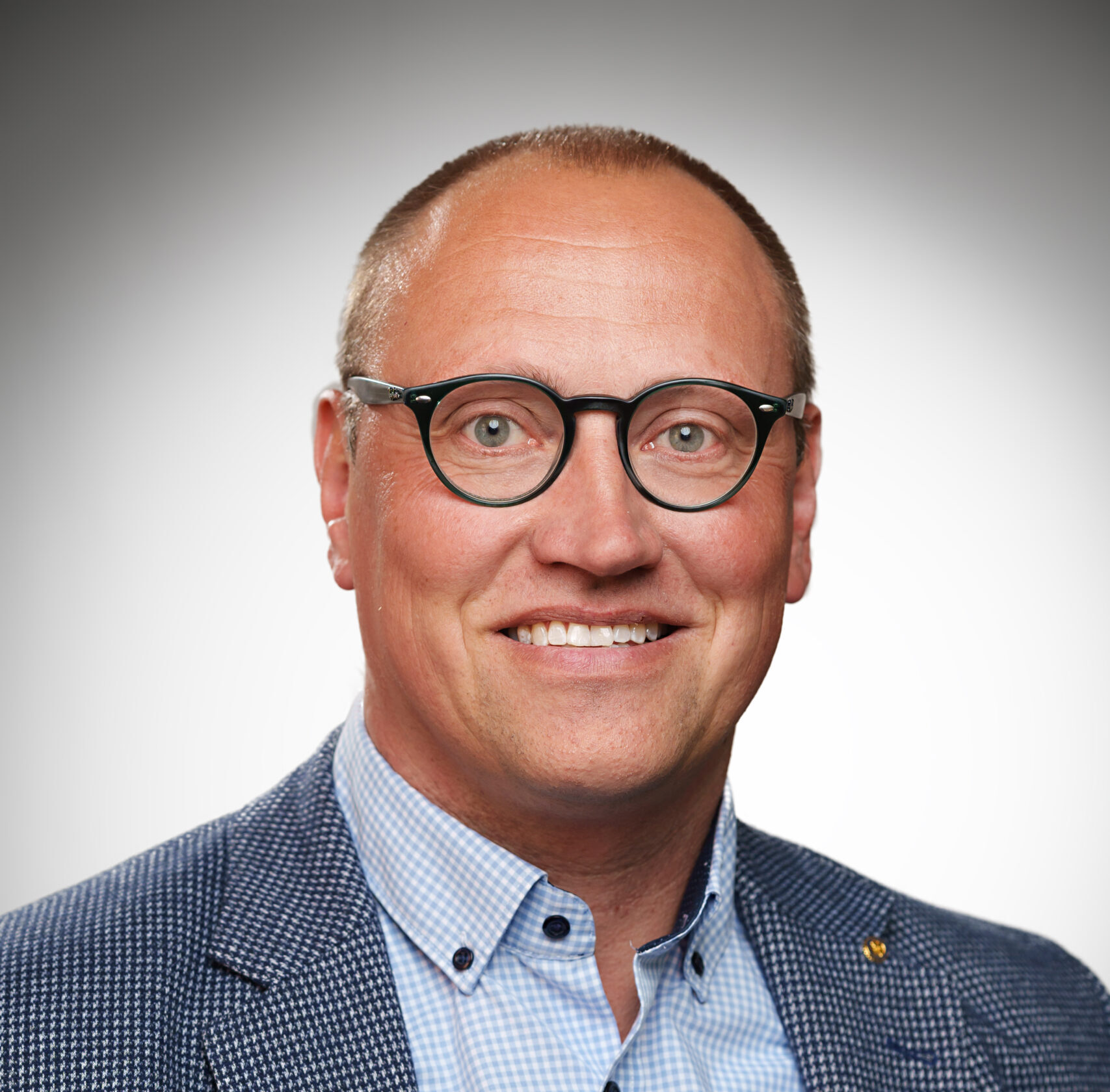
Prof. Dr. rer. nat. Christian Melchers
Technische Hochschule Georg Agricola, University
Herner Street 45
44787 Bochum
Building 2, room 104b
Phone 0234 968 3280
Mail christian.melchers@thga.de


